“Horrific…. Unprecedented.…Complete and utter devastation…Human, environmental and economic ruin.“ These are the words people are using to describe to me the impact of Hurricane Dorian, the Category 5 storm that pounded the northern Bahamas for 2 straight days.
Click here to make an online contribution.
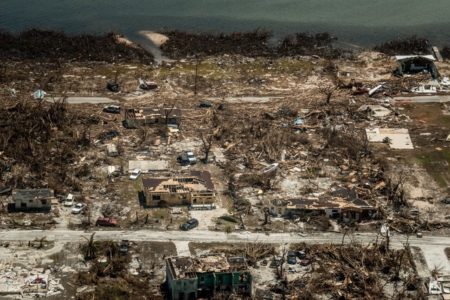
Last night I spoke with Erika Gates, a recent BirdsCaribbean Board member and resident and owner of eco-tourism businesses in Grand Bahama. She told me that the area around the Lucayan National Park is still in search and rescue/recovery mode. Rescue teams have not even reached the farthest east community of McClean’s Town yet!
In the community of High Rock, only 12 out of about 100 homes are still standing. One resident (and member of our Birdscaribbean community) is cooking for 100 people a day when supplies are brought in! The non-profit World Central Kitchen (Chef José Andrés) is cooking 6,000 meals a day on location to feed those that have lost everything.
We have also received reports that Dorian left the oil facility in High Rock in shambles. Sam Teacher, founder of the Freeport-based non-governmental organization Coral Vita, saw the damage firsthand. He said that the tanks’ white domes and sides were stained black and six of the domes that top the tanks were gone. Oil was soaking into the soil, lying across the highway, and covering a now-flightless bird.
The Need for Clean, Fresh Water
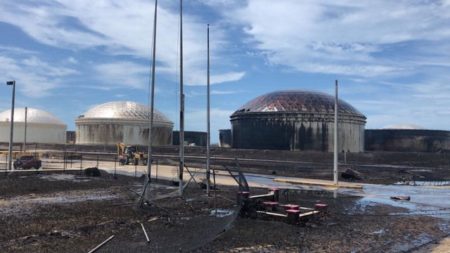
Petroleum is toxic and fresh water is limited on Grand Bahama. The population is almost entirely dependent on its aquifers for drinking water, and the water table on these islands is usually near the land surface. The spill could have an equally horrendous effect on marine life—which people depend on for both food and their economy. Sam worries the oil could further erode the coral and mangrove, already damaged by the hurricane, and destroy the natural sea wall that is supposed to protect the island from storms.
Our hearts go out to the people of these islands, many of whom are BirdsCaribbean members and friends. We are thankful that, as far we know, our friends and colleagues are safe and accounted for. We stand with our 30-year partner, the Bahamas National Trust (BNT), and pledge to do our best to help them with recovery of their birds, wildlife and national parks. To do this I need your help right now!
Our Experience With Major Hurricanes
Two years ago, we saw similar devastation when Hurricanes Irma and Maria cut a swathe of destruction across 18 different islands and leveled them. We know from experience that there are three tiers of action required to alleviate the situation:
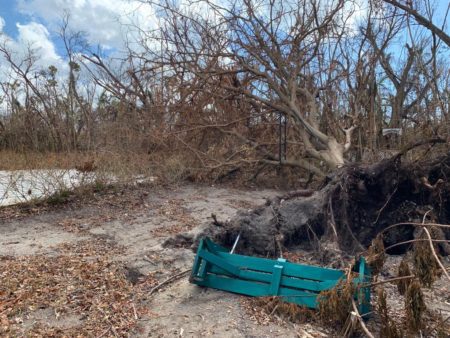
- Crisis management – simply addressing the most immediate needs of all survivors, both human and wildlife, to receive food and shelter;
- Rapid assessment of restoration needs. For BirdsCaribbean that means assembling teams that can survey and evaluate the situation of species at risk and the habitat restoration needed to ensure their survival.
- Formulating long-term policy changes that will make the communities and island’s habitats more resilient and better protected from the next terrible storm. That storm will inevitably appear on the horizon, now that climate change has made extreme hurricanes an annual event.
We know that the most immediate need will be supplemental food for starving birds. Most trees have been stripped of flowers, leaves, fruit and seeds. As we did for Hurricanes Irma and Maria, we are organizing delivery of nectar feeders and seed so that hungry birds will have help getting through a period of serious food shortage.
Delivering Hope
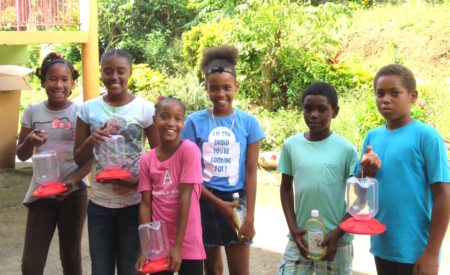
Feeding the birds is beneficial not only to the birds, but also indirectly to people. Hundreds of people on multiple islands, who received supplies for the birds in 2017, told us they were happy to help the birds, even though they themselves were struggling to survive. The simple act of helping another living creature was truly uplifting in a situation where people felt helpless. As birds began to recover, people felt this was a tiny but important first step towards normal life. The birds lifted their spirits, reminding them that nature – and their own lives – can be rejuvenated and renewed.
Right now, there is a huge need to help with the ongoing humanitarian crisis. We are gratified to see the outpouring of assistance with food, water and shelter, as well as rescue and evacuation to other islands and the U.S. for the tens of thousands that lost their homes. BirdsCaribbean’s role is to focus on the birds and ecosystems we all depend upon.
Mobilizing for the Restoration
As soon as conditions on the islands are stabilized, we are ready to help with the surveys, restoration and recovery actions: clean-ups, planting trees, and repairing and replacing damaged equipment and infrastructure in national parks and birding hotspots. It is a massive amount of work and we need your help to make it happen.
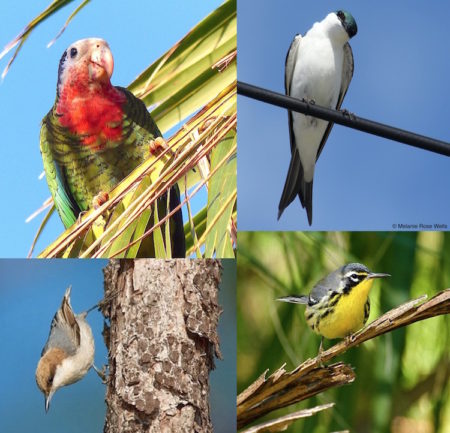
With huge parts of both islands flooded and hammered by strong winds for two days, we are seriously concerned about how four threatened and endemic birds that live on these islands are doing after the hurricanes. These species will be the focus of the first surveys. They include the Bahama Parrot (ground nesting population in Abaco, also occurs in Inagua in the southern Bahamas), the Bahama Nuthatch (only occurs on Grand Bahama, Critically Endangered), Bahama Warbler (only occurs on these 2 islands) and the Bahama Swallow (GB and Abaco comprise 2 of its 3-island range). Intensive surveys of the Bahama Nuthatch in 2018 found just 5 birds; this species has declined by more than 95% since the 1960s and 70s.
Other country and island endemics like the Olive-capped Warbler, Bahama Woodstar, Cuban Emerald, Red-legged Thrush, and many migratory warblers (like Kirkland’s Warbler, Painted Bunting), waterbirds and shorebirds (Piping Plover, Reddish Egret), and others also call the diverse habitats on these islands home.
We know from experience that birds are resilient; many are able to survive severe storms and hurricanes by hunkering down on the ground or sheltering in low vegetation. The fact that Hurricane Dorian raged for 48 hours without a break is almost without precedent. We are fearful about how many birds were able to survive this onslaught. Undoubtedly, many were lost during the storm.
By restoring the incredibly diverse ecosystems of the Grand Bahama and Abaco Islands, we will greatly increase our birds’ chances of survival. In addition, the sooner the islands and parks recover, the sooner we can restore residents’ livelihoods that are dependent on these ecosystems.
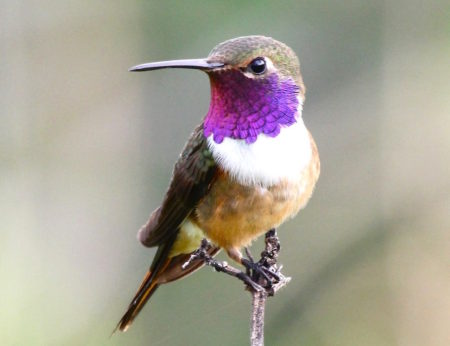
Although they will never be quite the same, we are optimistic and determined that these islands can be restored to their former glory once again, teeming with tropical vegetation and beautiful wildlife across the landscape. I need your help to make this happen, please give generously.
Thank you to all of you that have expressed concern and have already donated, and to those that are donating now!
Lisa Sorenson, Executive Director of BirdsCaribbean (Lisa.Sorenson@BirdsCaribbean.org)
Click here to make an online contribution.
If you prefer to donate with a check, please make the check out to “BirdsCaribbean” and in the memo section, note that it is for Hurricane Dorian Relief. If you have questions or wish to make other arrangements for donating, please feel free to contact Jennifer Wheeler, BirdsCaribbean Financial Officer (jennifer.wheeler@birdscaribbean.org) or Lisa Sorenson (Lisa.Sorenson@BirdsCaribbean.org).
Checks can be mailed to: BirdsCaribbean, 841 Worcester St. #130, Natick, MA 01760-2076
